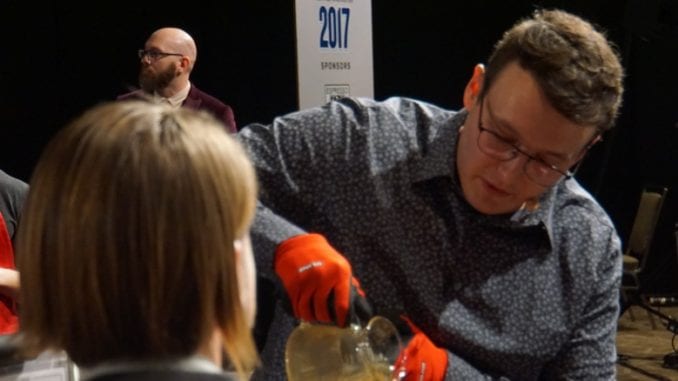
Last month, the United States Coffee Championships took place in Seattle, and we crowned four new champions. Over the next four days, we’ll talk to each champion about their road to victory.
BY CHRIS RYAN
BARISTA MAGAZINE ONLINE
This is the first in a four-part series covering all the U.S. champions.
When Kyle Ramage’s name was called in Seattle last month as the 2017 United States Barista Championship, he could hardly believe what he was hearing. For one, he describes himself as an “underdog from the jump” in the competition, matched up against many barista competitors of whom he is in awe. Secondly, to get to this point, he had to overcome a disastrous 2016 competition performance. “I made big errors in my espresso extraction at the qualifying event last year,” he says. “I didn’t qualify to go to nationals; I was pretty broken up about it.”
Kyle, 29, almost walked away from competition, but a key partnership and continued passion for barista competitions led him back to the stage. He talked to Barista Magazine about his path back to competition, his scientific approach in 2017, and what he has learned from the experience.
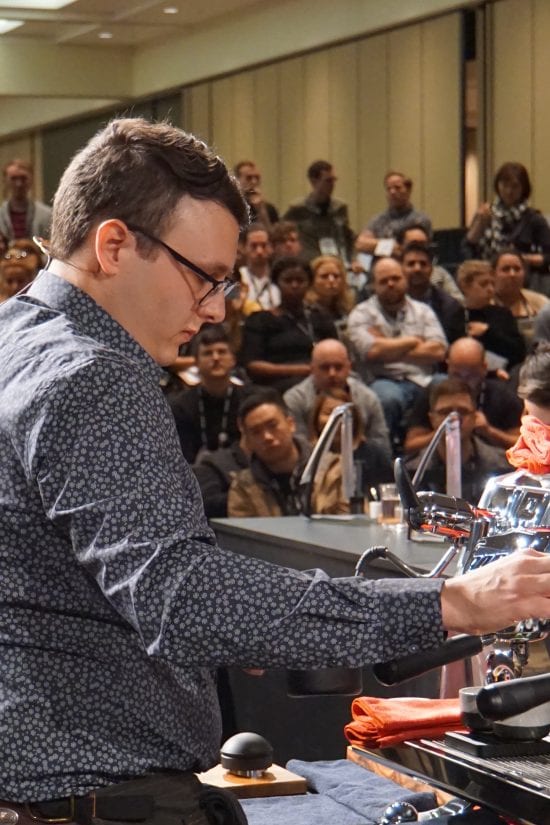
Chris Ryan: You have an unusual background for a barista competitor, working for Mahlkonig USA, a grinder manufacturer. What is your coffee background?
Kyle Ramage: I worked at a specialty cafe called Jubala Coffee in Raleigh, N.C., for two and a half years. I fell in love with the industry and started to dig deeper into it—it’s just a beautiful industry full of people who are so loving and caring to one another. I think of myself as a Counter Culture product; I came out of their educational system and their Counter Intelligence program.
CR: When did competition enter the equation?
KR: I competed on behalf of Jubala around 2012 or so and didn’t do very well. I ended my time at Jubala and came to work at Mahlkonig here in Durham, N.C. Even though I was working for a grinder company, I still wanted to compete, and my boss, Gary Horne, was nice enough to let me do that.
I competed two years ago and went to nationals. As far as I know I was the first equipment sponsor to ever compete in the national competition. I ended up getting 20th at the USBC that year. Then last year I had the issues and didn’t make it to nationals. I was pretty broken up about it, and my wife even asked me not to compete anymore.
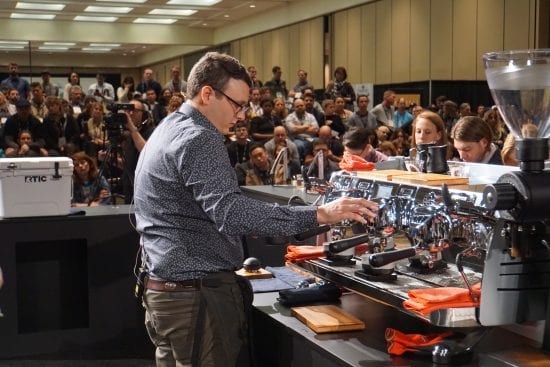
Then I ended up falling in with [2016 U.S. Barista Champion] Lem Butler, who lives down the street and is a good friend. In his run to nationals I tasted coffee with him, including for the semifinal and final rounds at USBC, which he of course ended up winning. Then I went with him to the World Barista Championship in Dublin, where he did an amazing job and placed fourth in the world.
CR: Did that experience influence you to compete again?
KR: Yeah, it definitely reignited my drive, especially having Lem in my corner. I told him: Let’s try again. You’ll be my coach this time, and we’ll work together on another routine. So he became my coach, and was at most of my practice sessions when he wasn’t traveling the world being a WBC All-Star. (Read Lem’s recap of his year as USBC champ here.)
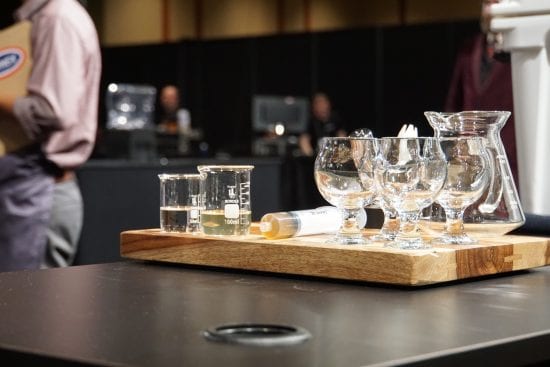
CR: What influenced your routine at USBC this year?
KR: Probably 18 months ago, Christopher Hendon, the computational chemistry guy from MIT, did the “Water for Coffee” book [with Maxwell Colonna-Dashwood], and they conducted an experiment where they froze coffee at a few different temperatures and in a few different ways—a commercial freezer, dry ice, and liquid nitrogen—to see what happened to the particle distribution. They basically found that coffee, when you super-freeze it below something like 50 degrees Celsius, becomes very fragile, and it actually reacts to the grinder in a very consistent way. It can make a pretty acidic coffee come out pretty sweet, which I thought was cool. So that was the genesis behind the idea, and since they used our grinders and Mahlkonig collaborated with this experiment, I wanted to present the info. I also thought: If anyone can present this in competition it’s the grinder dude, right?
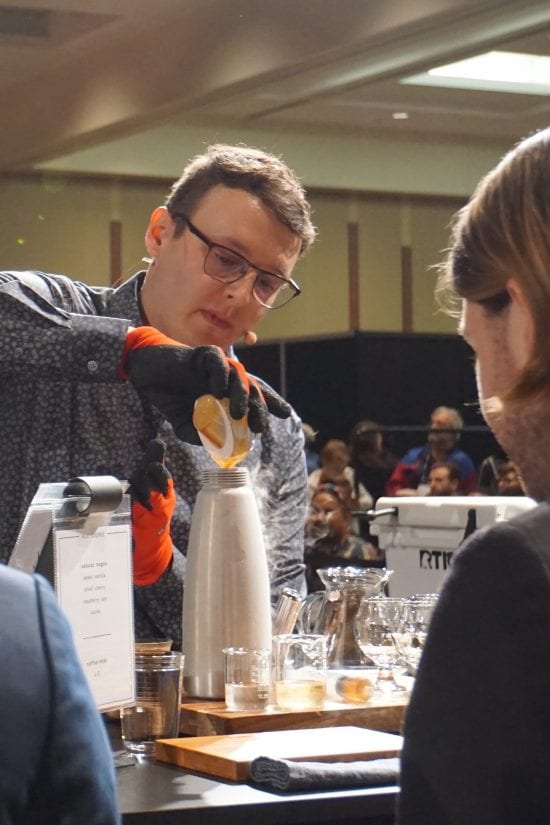
CR: So as the grinder guy, what do you hope to accomplish as USBC champ?
KR: I hope with all that I have that this encourages more people to give competing a shot. What I’ve learned from competition is invaluable. You learn a lot about your ambitions, your goals, and what you’re willing to do to make something happen. I hope this encourages more tech people, more roasters, more customer service managers—more whatever— to just give this a shot. Also, I feel like competition is a microcosm of life in its own weird way. Your past failures don’t mean anything about your future successes, and how you react to failure shows a ton more about who you are than your accomplishments do.
CR: Finally, how do you feel about representing the USA at the World Barista Championship in November in South Korea?
KR: I’m incredibly excited to be our representative, and incredibly honored to be among that group. To even be included in that conversation with those amazing coffee professionals gives me great pause. I feel very honored, but I’m also incredibly nervous. There are a lot of months between now and November, so there will be a lot to figure out. I really can’t wait though.

